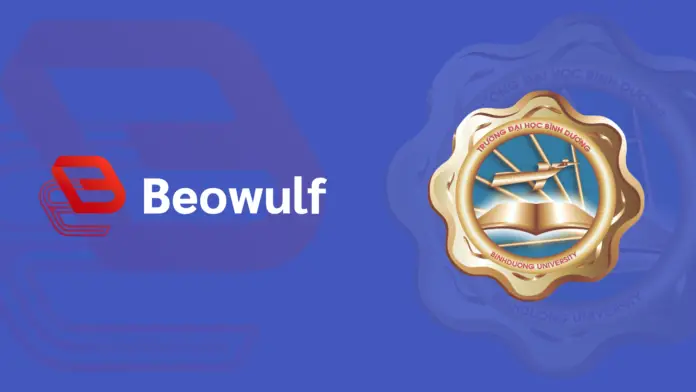
Beowulf Blockchain, a decentralized communication service provider, based in the US, has entered into a strategic collaboration with Vietnam’s Binh Duong University, one of the biggest private universities of the country with over 13K students. Through the partnership, Beowulf is set to strengthen the university’s academic quality through its dedicated platform for distance education called Victoria. The collaboration would also enable an easier channel of communication utilizing QUICKOM, call services based on QR code, for the university’s contact center.
According to the announcement, the Victoria platform will allow students to connect and learn from qualified teachers from around the world anytime. That is expected to elevate the teaching quality as well as student engagement.
Dr. Hieu Viet Cao, Binh Duong University’s President, feels it is more vital to stimulate the students’ motivation to learn than merely imparting knowledge. With Beowulf’s Victoria platform, learning would take place in a way that’s similar to a real-life classroom scenario, added Dr. Cao. He added,

It is important to note that Victoria offers a 2-way interaction with its platform where students and teachers can collaborate through video-conferencing in real-time. That means students and teachers can come together on this platform, irrespective of their geographical location, and meet their quality distance education goals.
Dr. William H. Nguyen, the Founder-CEO of Beowulf, said that Victoria would eventually transform the present knowledge exchange landscape for students. While interest in distance education seems to have reached its peak, progressive schools across the world are constantly taking initiatives to boost learning. It would also help bring about thriving nations and communities, added Dr. Nguyen.
In addition to the learning platform, the university would also be using the QUICKOM technology by Beowulf that is known to facilitate communication between users through texts and calls using the technology of QR codes. Thanks to this technology, the students would just have to scan the QR code through their smartphone to make calls directly. As a result, receiving assistance for their inquiries would become a hassle-free and quicker experience.
